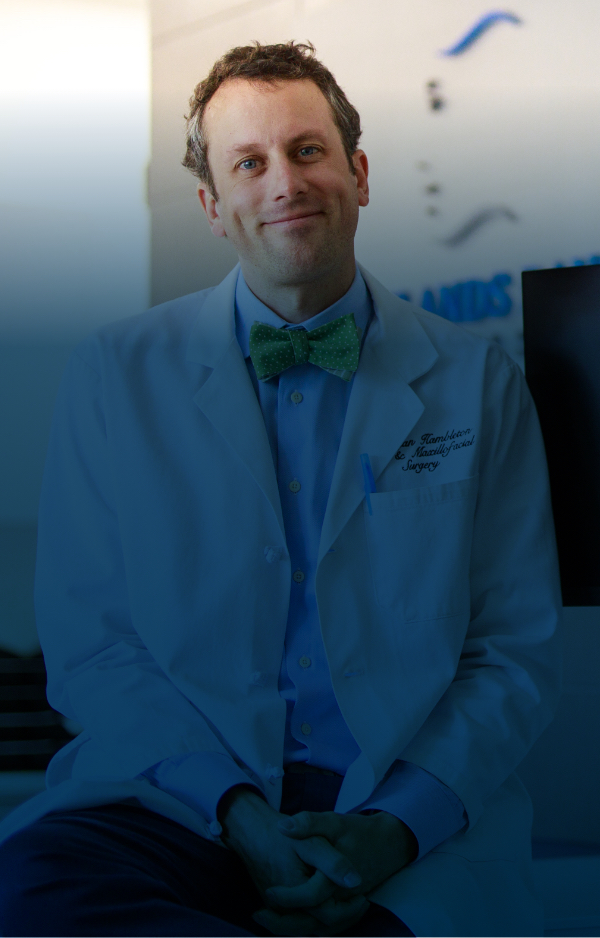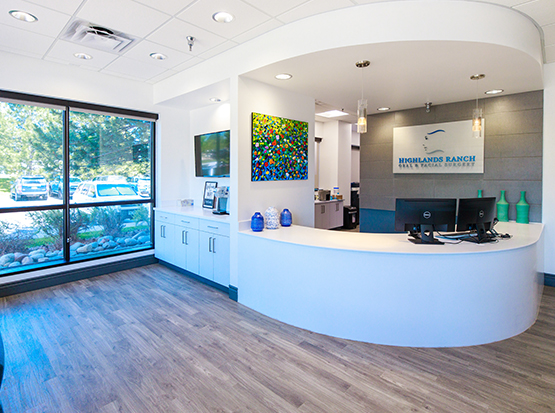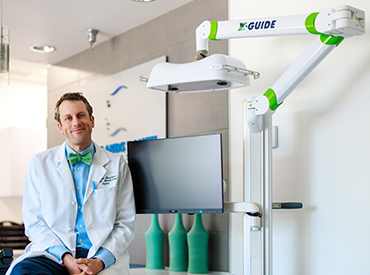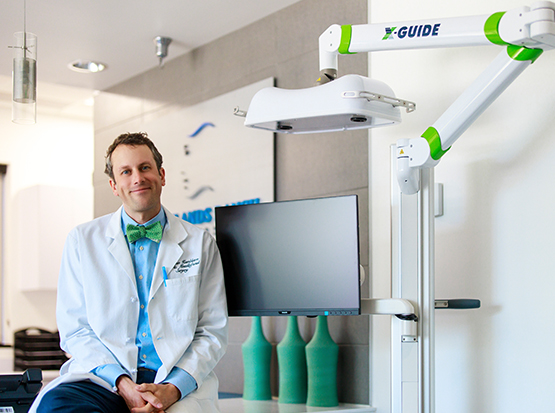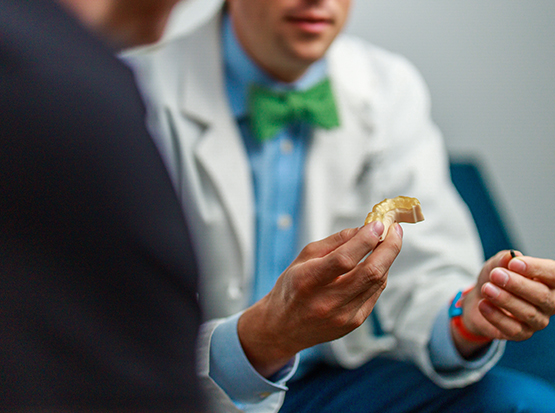Board-certified oral and maxillofacial surgeon Dr. Ryan Hambleton offers personalized, comfortable care to families in Parker, Colorado. His comprehensive approach includes listening to your concerns and thoroughly evaluating your dental and medical histories and oral health before explaining treatment options. Dr. Hambleton uses advanced tools and techniques and enhanced safety measures to improve the quality, accuracy, and efficiency of your care. His detailed explanations of tooth replacement and oral surgery options ease anxiety about dental procedures and help you confidently choose a treatment that supports your goals and preferences.
Our Services
Dr. Hambleton offers comprehensive care for tooth removal, tooth replacement, and other oral surgeries. Our team will put you at ease and give you comfortable, supportive care throughout your visit. We educate you about what to expect before, during, and after your procedure. And we listen to your concerns and anxieties and explain how sedation can complement a smooth dental experience. We welcome you to request a consultation for any of our services.
Wisdom Teeth Removal / Wisdom Teeth Extraction
Wisdom teeth removal can relieve you of discomfort from partially or fully impacted third molars. Even if you do not have symptoms, removing wisdom teeth can prevent future concerns, including tooth decay, gum infection, jawbone cysts, or tooth misalignment from wisdom teeth that push against other teeth. Dr. Hambleton can perform oral surgery to protect your oral health. Sometimes, wisdom teeth erupt entirely in the correct position and do not require removal. But if you still have your wisdom teeth, we would be more than happy to remove them.
Learn More About Wisdom Teeth Removal
Tooth Extractions
You and Dr. Hambleton may determine that you need a tooth extraction for any number of reasons. Some teeth are extracted because they are severely decayed; others may have advanced periodontal disease, or have broken in a way that cannot be repaired. Other teeth may need removal because they are poorly positioned in the mouth (such as impacted teeth), or in preparation for orthodontic treatment.
The removal of a single tooth can lead to problems related to your chewing ability, problems with your jaw joint, and shifting teeth, which can have a major impact on your dental health.
To avoid these complications, in most cases, Dr. Hambleton will discuss alternatives to extractions as well as replacement of the extracted tooth.
Bone Grafting
A bone graft is a procedure to restore bone loss due to an extraction, trauma, disease, or shrinkage from prolonged tooth loss. Dental implant sites require enough bone volume to serve as a solid foundation for dental implants. After reviewing a 3-D scan of your oral anatomy, Dr. Hambleton will determine whether you need bone grafting before getting dental implants. He may include bone grafting in your treatment plan to give your implants a healthy start and ensure they last.
Corrective Jaw Surgery
Orthognathic surgery is needed when the top and bottom jaws don’t meet correctly and/or teeth don’t adequately fit within the jaw. Teeth are straightened with orthodontics, and corrective jaw surgery repositions a misaligned jaw. This not only improves facial appearance, but also ensures that teeth meet correctly and function properly.
Impacted Teeth
An impacted tooth simply means that it is “stuck” and cannot erupt into function. Patients frequently develop problems with impacted third molar (wisdom) teeth. These teeth get “stuck” in the back of the jaw and can develop painful infections, among a host of other problems (see Wisdom Teeth under Procedures). Since there is rarely a functional need for wisdom teeth, they are usually extracted if they develop problems. The maxillary cuspid (upper eyetooth) is the second most common tooth to become impacted. The cuspid tooth is a critical tooth and plays an important role in your “bite”. The cuspid teeth are very strong biting teeth and have the longest roots of any human teeth. They are designed to be the first teeth that touch when your jaws close together so they guide the rest of the teeth into the proper bite.
Normally, the maxillary cuspid teeth are the last of the “front” teeth to erupt into place. They usually come into place around age 13 and cause any space left between the upper front teeth to close tighter together. If a cuspid tooth gets impacted, every effort is made to get it to erupt into its proper position. The techniques involved to aid eruption can be applied to any impacted tooth in the upper or lower jaw, but most commonly they are applied to the maxillary cuspid (upper eye) teeth. Sixty percent of these impacted eyeteeth are located on the palatal (roof of the mouth) side of the dental arch. The remaining impacted eye teeth are found in the middle of the supporting bone, but are stuck in an elevated position above the roots of the adjacent teeth, or are out to the facial side of the dental arch.
Experienced Oral Surgeon Serving Parker, CO and Surrounding Areas
Dr. Hambleton and his team offer residents individualized care and the optimal patient experience every time they visit our office. Contact Highlands Ranch Oral & Facial Surgery in Littleton, CO to schedule an oral surgery consultation today at (720) 996-0210.
